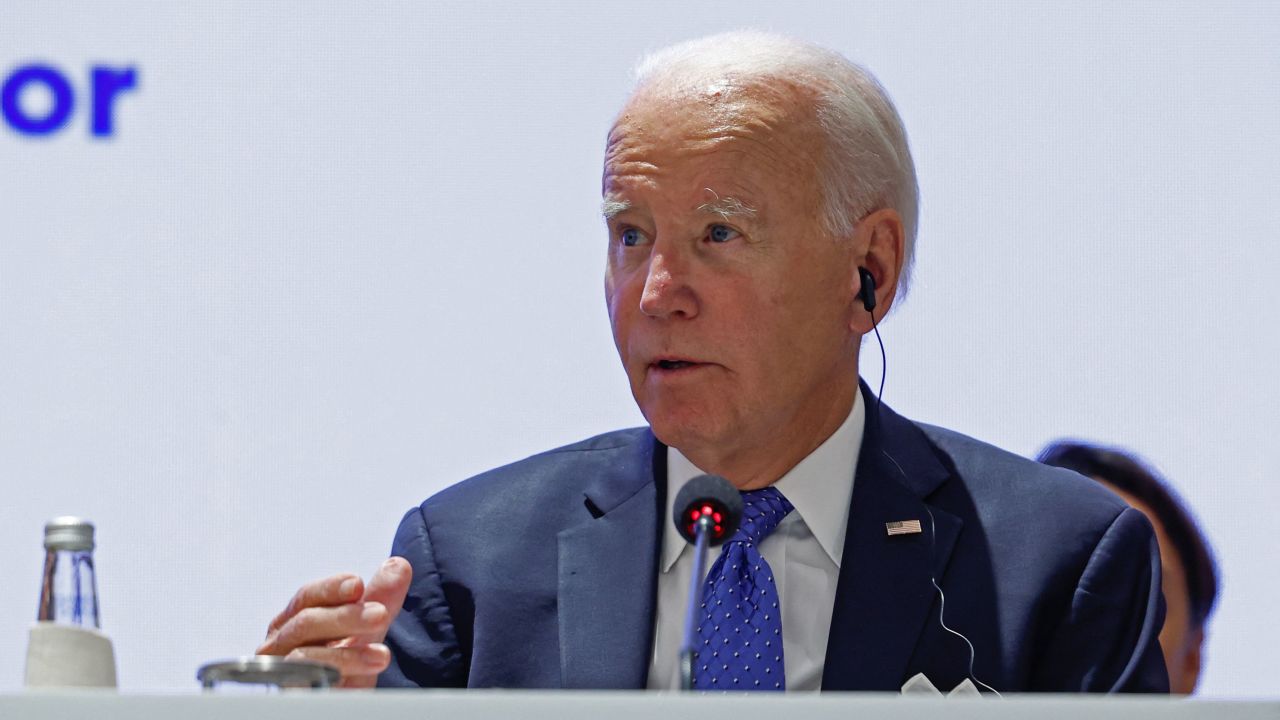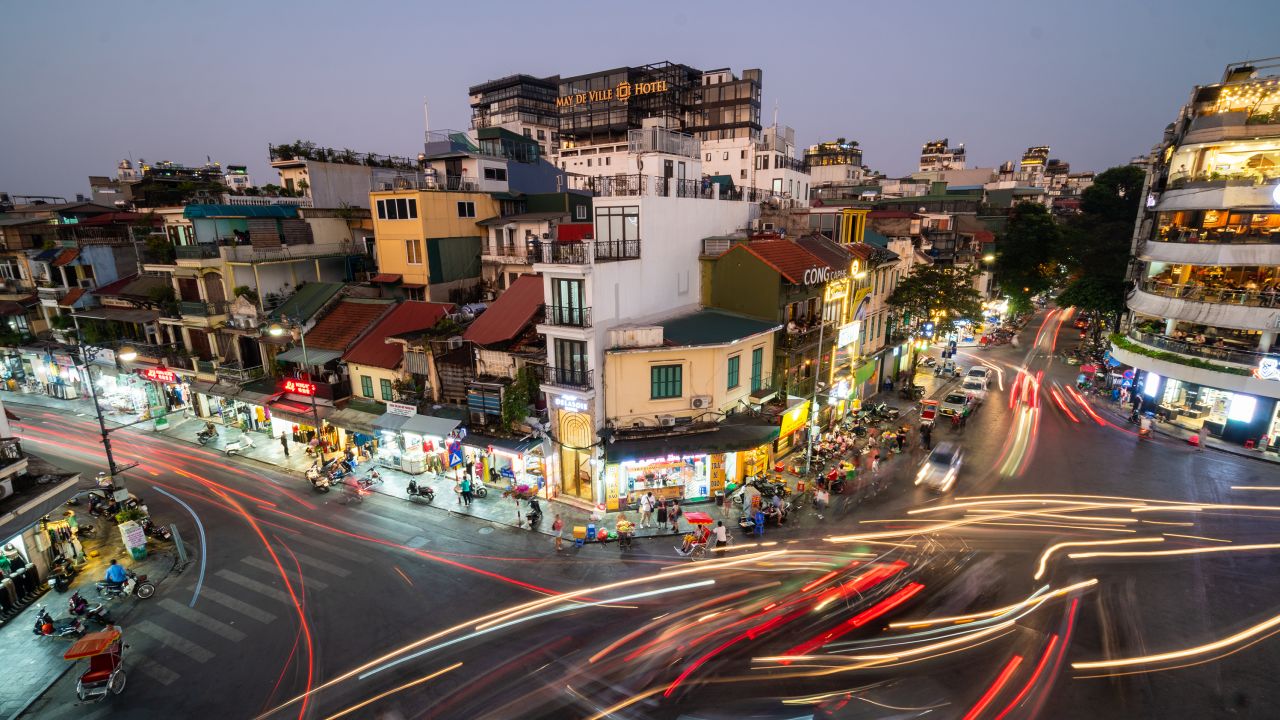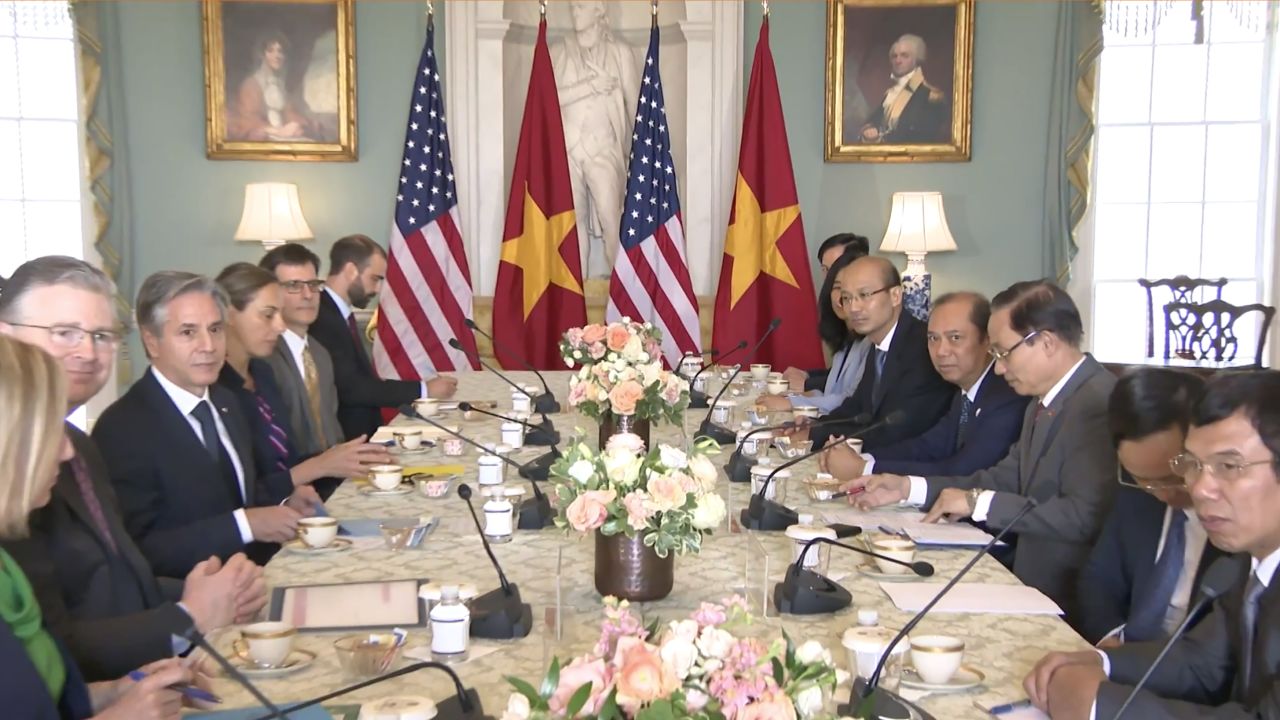[ad_1]
Hanoi, Vietnam
CNN
—
President Joe Biden will arrive at Chinese leader Xi Jinping’s doorstep on Sunday with a deal in hand to draw yet another one of China’s neighbors closer to the United States.
In just the last five months, Biden has hosted the Philippines’ president at the White House for the first time in over a decade; he has fêted the Indian prime minister with a lavish state dinner; and he has hosted his Japanese and South Korean counterparts for a summit ripe with symbolism at the storied Camp David presidential retreat.
At each turn, Biden’s courtship and his team’s steadfast diplomacy have secured stronger diplomatic, military and economic ties with a network of allies and partners joined if not by an outright sense of alarm at China’s increasingly aggressive military and economic posture, then at least by a growing sense of caution and concern.
The latest page in the US’s Indo-Pacific playbook will come via the establishment of a “comprehensive strategic partnership” that will put the US on par with Vietnam’s highest tier of partners, including China, according to US officials familiar with the matter.
“It marks a new period of fundamental reorientation between the United States and Vietnam,” a senior administration official said ahead of Biden’s arrival in Hanoi, saying it would expand a range of issues between the two countries.
“It’s not going to be easy for Vietnam, because they’re under enormous pressure from China,” the official went on. “We realize the stakes and the President is going to be very careful how he engages with Vietnamese friends.”
The US’ increasingly tight-knit web of partnerships in the region is just one side of the US’s diplomatic strategy vis-à-vis China. On a separate track, the Biden administration has also pursued more stable ties and improved communication with Beijing over the last year, with a series of top Cabinet secretaries making the trip to the Chinese capital in just the last few months.
The latter part of that playbook has delivered fewer results thus far than Biden’s entreaties to China’s wary neighbors, a dichotomy that was on stark display as Biden attended the G20 in New Delhi, while Chinese leader Xi Jinping did not.

The president did not appear overly concerned when questioned Saturday about his Chinese counterpart’s absence at the summit.
“It would be nice to have him here,” Biden said, with Modi and a handful of other world leaders by his side. “But, no, the summit is going well.”
As Biden and Xi jockey for influence in Asia and beyond, merely showing up can be seen as a power play and Biden sought to make the most of Xi’s absence, seizing the opening to pitch the United States’ sustained commitment both to the region and to developing nations around the world.
In Vietnam, it’s not only China whose influence Biden is competing with. As he arrived, reports suggested Hanoi was preparing a secret purchase of weapons from Russia, its longtime arms supplier.
On Monday, Biden plans to announce steps to help Vietnam diversify away from an over-reliance on Russian arms, a senior administration official said.
As China’s economy slows down and its leader ratchets up military aggressions, Biden hopes to make the United States appear a more attractive and reliable partner. In New Delhi, he did so by wielding proposals to boost global infrastructure and development programs as a counterweight to China.
Beijing and Moscow have both condemned a so-called “Cold War mentality” that divides the world into blocks. The White House insists it is seeking only competition, not conflict.
Still, the desire to pull nations into the fold has been evident.

On Saturday, Biden held a photo op with the leaders of India, Brazil and South Africa – three members of the BRICS grouping that Xi has sought to elevate as a rival to US-dominated summits like the G20.
If there is a risk in that approach, it is leaving nations feeling squeezed by rival giants. For Biden, however, there is an imperative in at least offering poorer nations an alternative to China when it comes to investments and development.
But increasingly, China’s neighbors – like Vietnam – are seeking a counterweight to Beijing’s muscular and often unforgiving presence in the region, even if they are not prepared to entirely abandon China’s sphere of influence in favor of the US’.
“We’re not asking or expecting the Vietnamese to make a choice,” the senior administration official said. “We understand and know clearly that they need and want a strategic partnership with China. That’s just the nature of the beast.”
Days before Biden’s visit and the expected strategic partnership announcement, China sent a senior Communist Party official to Vietnam to enhance “political mutual trust” between the two communist neighbors, the official Chinese Xinhua news agency reported.
Asked about Biden’s upcoming visit to Vietnam, China’s Foreign Ministry on Monday warned the US against using its relations with individual Asian countries to target a “third party.”
“The United States should abandon Cold War zero-sum game mentality, abide by the basic norms of international relations, not target a third party, and not undermine regional peace, stability, development and prosperity,” ministry spokesperson Mao Ning told a daily briefing.
Vietnam has also sought to maintain good ties with China. Its Communist Party chief was the first foreign leader to call on Xi in Beijing after the Chinese leader secured an unprecedented third term last October. In June, Vietnam’s prime minister met Xi during a state visit to China.

But even as it seeks to avoid China’s wrath, Vietnam is increasingly pulled toward the US out of economic self-interest – its trade with the US has ballooned in recent years and it is eager to benefit from American efforts to diversify supply chains outside of China – as well as concern over China’s military build-up in the South China Sea.
Experts say those tightened partnerships are as much a credit to the Biden administration’s comprehensive China strategy as it is a consequence of the way China has increasingly aggressively wielded its military and economic might in the region.
“China has long complained about the US alliance network in its backyard. It has said that these are vestiges of the Cold War, that the US needs to stop encircling China, but it’s really China’s own behavior and its choices that have driven these countries together,” said Patricia Kim, a China expert at the Brookings Institution.
“So in many ways, China’s foreign policy has backfired.”
The upgrading of the US-Vietnam relationship carries huge significance given Washington’s complicated history with Hanoi.
The two countries have gone from mortal enemies that fought a devastating war to increasingly close partners, even with Vietnam still run by the same Communist forces that ultimately prevailed and sent the US military packing.
While the upgrading of that relationship has been a decade in the making, US officials say a concerted drive to take the relationship to new heights carried that years-long momentum over the line.
A late June visit to Washington by Vietnam’s top diplomat, Chairman Le Hoai Trung, crystallized that possibility. During a meeting with national security adviser Jake Sullivan, the two first discussed the possibility of upgrading the relationship, according to a Biden administration official.
As he walked back to his office, Sullivan wondered whether the US could be more ambitious than a one-step upgrade in the relationship – to “strategic partner” – and directed his team to travel to the region and deliver a letter to Trung proposing a two-step upgrade that would take the relations to their highest-possible level, putting the US on par with Vietnam’s other “comprehensive strategic partners”: China, Russia, India and South Korea.
Sullivan would speak again with Trung on July 13 while traveling with Biden to a NATO summit in Helsinki.
The conversation pushed the possibility of a two-step upgrade in a positive direction, but it wasn’t until a mid-August visit to the White House by Vietnam’s ambassador to Washington that an agreement was in hand. Inside Sullivan’s West Wing office, the two finalized plans to take the US-Vietnam relationship to new heights and for Biden and Vietnam’s leader, General Secreatary Nguyen Phu Trong, to shake hands in Hanoi.
The trip was still being finalized when Biden revealed during an off-camera fundraiser that he was planning to visit. The remark sent the planning into overdrive.
Still, US officials are careful not to characterize the rapprochement with Vietnam – or with the Philippines, India, Japan and Korea, or its AUKUS security partnership with Australia and the United Kingdom – as part of a comprehensive strategy to counter China’s military and economic heft in the Indo-Pacific.
“I think that’s a deliberate design by the Biden administration,” said Yun Sun, the China program director at the Stimson Center. “You don’t want countries in the region or African countries to feel that the US cares about them only because of China because that shows a lack of commitment. That shows that, ‘Well, we care about you only because we don’t want you to go to the Chinese.’”
[ad_2]
